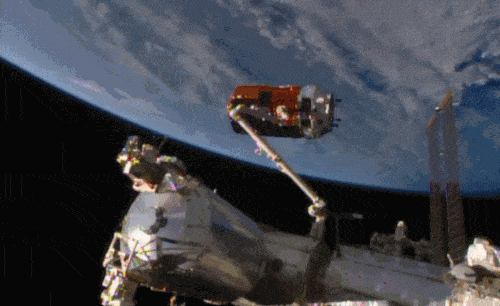The True Sign Of Intelligence Is Not Knowledge But Imagination.
The true sign of intelligence is not knowledge but imagination.
Albert Einstein (via alberteinsteinquotes)
More Posts from Space-m17-blog and Others

Introducing Ethiopia’s just born Space research programme
High above the crowded streets of Addis Ababa, among fields where farmers lead oxen dragging wooden ploughs, sits Ethiopia’s space programme.
Perched at the top of the 3200m-high Mount Entoto, two metal domes house telescopes, each a metre in diameter. In operation for only a few months, they have propelled Ethiopia into an elite club of African countries to have embarked on a space programme.
Its programme is aimed at giving the country a technological boost that will aid its already rapid development.
“Science is part of any development cycle,” says Abinet Ezra, spokesman for the Ethiopian Space Science Society. “Without science and technology nothing can be achieved.
“Our main priority is to inspire the young generation to be involved in science and technology.”
The society, funded by Ethiopian-Saudi business tycoon Mohammed Alamoudi, was set up in 2004 to promote astronomy. But its supporters have had a tough ride setting up the space programme.
For the past decade, a handful of enthusiasts - including Solomon Belay, director of the observatory and a professor of astrophysics - battled with the authorities to convince them that, in a country that is still one of the poorest in the world, where malnutrition is still a threat, the exploration of space is not a luxury. Ethiopian strongman Meles Zenawi, who died in 2012, considered them dreamers.
“People said we were crazy,” says Belay.
The R39-million space observatory is, above all, a symbol. The site at Entoto, often hidden by clouds during the rainy season and close to the lights of Addis Ababa, struggles to compete with the world’s major observatories, including the far larger Southern African Large Telescope in South Africa.
But Ethiopia has plans, including to build a far more powerful observatory in the northern mountains around Lalibela, far from city lights.
The government hopes to launch a national space agency - and to put an Ethiopian satellite in orbit within five years, for the monitoring of farmland and to boost communications.
“We are using space applications in everyday activities, for mobile phones, weather - space applications are fundamental,” says Kelali Adhana, the International Astronomical Union chief for East Africa, based in Ethiopia. “We cannot postpone it, otherwise we allow ourselves to live in poverty.”
At Ethiopia’s Institute of Technology, in the northern town of Mekelle, scientists plan to test the first Ethiopian rocket to go more than 30km, although that is still far from the 100km frontier beyond which the Earth’s atmosphere gives way to space proper.
New video! Supernova Remnants in a nutshell!
What’s Up for September?

Stargazing and looking up into the night sky is always a fun thing to do. This month, it will be especially exciting because there will be a total eclipse of a supermoon, plus the opportunity to see planets and the late-summer Milky Way!
What is a supermoon?

A supermoon is a new or full moon that occurs when it is at, or near its closest approach to Earth in a given orbit. There are usually 4 to 6 supermoons every year.
Observers can view the total eclipse on September 27, starting at 10:11 p.m. EDT until 11:23 p.m. This event will be visible in North and South America, as well as Europe and Africa. So make sure to mark your calendars!

This month, you will also be able to see the planets! Look for Mercury, Saturn, Pluto and Neptune in the evening sky. Uranus and Neptune at midnight, and Venus, Mars and Jupiter in the pre-dawn sky.

Finally, if you’re able to escape to a dark location, you might be able to see a great view of our Milky Way!
So, make sure to get outside this month and take a look at everything our night sky has to offer.

Make sure to follow us on Tumblr for your regular dose of space: http://nasa.tumblr.com

A photo of Jupiter. Took by Cassini with COISS on April 02, 2001 at 15:22:15. Detail page on OPUS database.












Daily reminder that we have a spacecraft orbiting Saturn—over one billion miles (1.636x10^9 km) away—and it transmits photos like these to us regularly. Thank you, Cassini–Huygens!

In case you missed it earlier in July, here’s a look at how our view of Pluto has changed over the course of several decades. The first frame is a digital zoom-in on Pluto as it appeared upon its discovery by Clyde Tombaugh in 1930 (image courtesy Lowell Observatory Archives). The other images show various views of Pluto as seen by NASA’s Hubble Space Telescope beginning in the 1990s and NASA’s New Horizons spacecraft in 2015. The final sequence zooms in to a close-up frame of Pluto released on July 15, 2015.
This amazing view of details on Pluto came via New Horizons, which launched on Jan. 19, 2006. New Horizons swung past Jupiter for a gravity boost and scientific studies in February 2007, and conducted a reconnaissance flyby study of Pluto and its moons in summer 2015. Pluto closest approach occurred on July 14, 2015. As part of an extended mission, the spacecraft is expected to head farther into the Kuiper Belt to examine one or two of the ancient, icy mini-worlds in that vast region, at least a billion miles beyond Neptune’s orbit.
Image credits available here.

Annular Eclipse at Westwood, CA
js

Aboard the International Space Station this morning, Astronaut Kimiya Yui of the Japan Aerospace Exploration Agency (JAXA) successfully captured JAXA’s Kounotori 5 H-II Transfer Vehicle (HTV-5) at 6:28 a.m. EDT.
Yui commanded the station’s robotic arm, Canadarm2, to reach out and grapple the HTV-5, while NASA astronauts Kjell Lindgren provided assistance and Scott Kelly monitored HTV-5 systems. The HTV-5 launched aboard an H-IIB rocket at 7:50 a.m. Wednesday, Aug. 19, from the Tanegashima Space Center in southern Japan. Since then, the spacecraft has performed a series of engine burns to fine-tune its course for arrival at the station.
The HTV-5 is delivering more than 8,000 pounds of equipment, supplies and experiments in a pressurized cargo compartment. The unpressurized compartment will deliver the 1,400-pound CALorimetric Electron Telescope (CALET) investigation, an astrophysics mission that will search for signatures of dark matter and provide the highest energy direct measurements of the cosmic ray electron spectrum.
Below is a breathtaking image shared by Astronaut Scott Kelly of the HTV-5 and Canadarm2, which reached out and grappled the cargo spacecraft.


A photo of S Rings, a ring near Saturn. Took by Cassini with COISS on October 02, 2008 at 18:38:16. Detail page on OPUS database.
-
 mjdzzz liked this · 2 years ago
mjdzzz liked this · 2 years ago -
 cracklesblog liked this · 3 years ago
cracklesblog liked this · 3 years ago -
 sembarulhooonaoestoucaaa reblogged this · 3 years ago
sembarulhooonaoestoucaaa reblogged this · 3 years ago -
 bb1323 liked this · 3 years ago
bb1323 liked this · 3 years ago -
 whereelsewouldispendmytime liked this · 3 years ago
whereelsewouldispendmytime liked this · 3 years ago -
 tear-soaked-cheeksdonteverlast reblogged this · 3 years ago
tear-soaked-cheeksdonteverlast reblogged this · 3 years ago -
 ayumunoya reblogged this · 3 years ago
ayumunoya reblogged this · 3 years ago -
 ayumunoya liked this · 3 years ago
ayumunoya liked this · 3 years ago -
 sembarulhooonaoestoucaaa reblogged this · 3 years ago
sembarulhooonaoestoucaaa reblogged this · 3 years ago -
 sembarulhooonaoestoucaaa liked this · 3 years ago
sembarulhooonaoestoucaaa liked this · 3 years ago -
 tkmarcic liked this · 4 years ago
tkmarcic liked this · 4 years ago -
 powerjuon liked this · 4 years ago
powerjuon liked this · 4 years ago -
 photosslight-blog-blog liked this · 4 years ago
photosslight-blog-blog liked this · 4 years ago -
 sunflowerofpositivity liked this · 4 years ago
sunflowerofpositivity liked this · 4 years ago -
 dee-rodd reblogged this · 4 years ago
dee-rodd reblogged this · 4 years ago -
 dee-rodd liked this · 4 years ago
dee-rodd liked this · 4 years ago -
 deeptalksarethebest liked this · 4 years ago
deeptalksarethebest liked this · 4 years ago -
 qwerty333639 liked this · 5 years ago
qwerty333639 liked this · 5 years ago -
 mgsiglesias reblogged this · 5 years ago
mgsiglesias reblogged this · 5 years ago -
 sukka2 liked this · 5 years ago
sukka2 liked this · 5 years ago -
 cashmaniacdevil reblogged this · 5 years ago
cashmaniacdevil reblogged this · 5 years ago -
 hasna-bahddane liked this · 5 years ago
hasna-bahddane liked this · 5 years ago -
 annipupsihobi liked this · 5 years ago
annipupsihobi liked this · 5 years ago -
 rowdy-rebel reblogged this · 5 years ago
rowdy-rebel reblogged this · 5 years ago -
 robsun-girl liked this · 5 years ago
robsun-girl liked this · 5 years ago -
 4lifesgood liked this · 5 years ago
4lifesgood liked this · 5 years ago -
 poren1234 liked this · 5 years ago
poren1234 liked this · 5 years ago -
 the-hope-of-a-new-day reblogged this · 5 years ago
the-hope-of-a-new-day reblogged this · 5 years ago -
 versos-de-un-lobo-solitario liked this · 5 years ago
versos-de-un-lobo-solitario liked this · 5 years ago -
 marimuthusposts-blog liked this · 5 years ago
marimuthusposts-blog liked this · 5 years ago -
 severelightzonklover-blog liked this · 5 years ago
severelightzonklover-blog liked this · 5 years ago -
 cloudsxclouds liked this · 6 years ago
cloudsxclouds liked this · 6 years ago -
 otodeterministbiri reblogged this · 6 years ago
otodeterministbiri reblogged this · 6 years ago -
 yourflimsyadmirer-blog reblogged this · 6 years ago
yourflimsyadmirer-blog reblogged this · 6 years ago -
 otodeterministbiri reblogged this · 6 years ago
otodeterministbiri reblogged this · 6 years ago -
 otodeterministbiri reblogged this · 6 years ago
otodeterministbiri reblogged this · 6 years ago
I love space. I've been to space camp in Huntsville Alabama and I am planning on going every summer. I look forward to be an astronaut for nasa on the sls that is planned to be launched 2018. And the manned mission 2030. So yeah I won't let anything get in my way.
138 posts